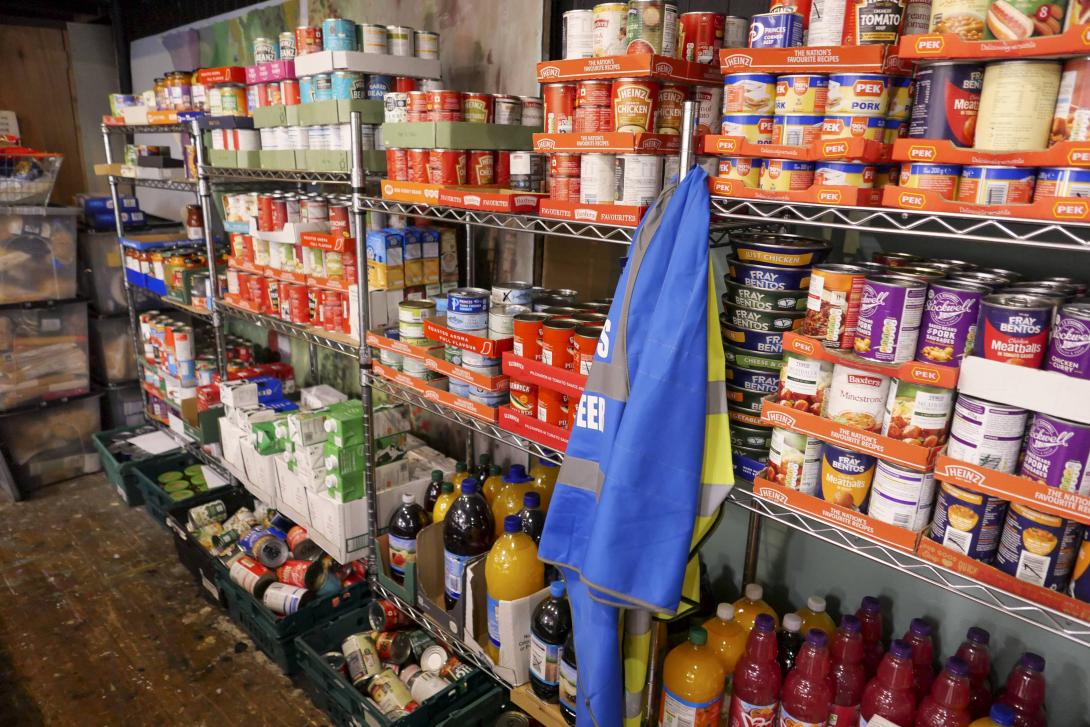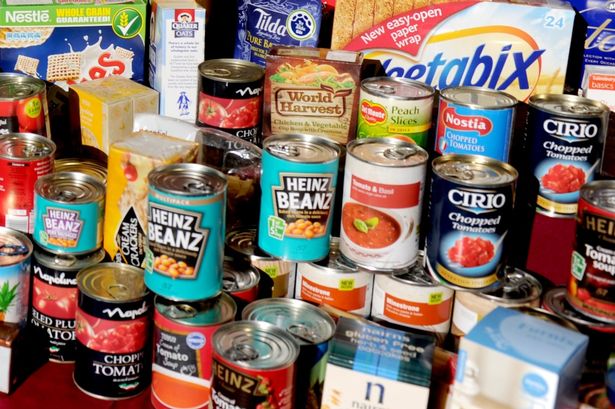New data shows food insecurity major challenge to levelling up agenda

- New data released by the Food Foundation shows continued rise in food insecurity across the UK. Compared with July 2021 the figure has risen from 7.3% of UK households to 8.8% (4.7 million adults) in the past month.
- 3.6% (1 million) adults reported that they or someone in their household have had to go a whole day without eating in the past month because they couldn’t afford or access food.
- The Food Foundation calls on Government to make food insecurity central to the levelling up agenda.
- People who are limited a lot by disability are approximately 5 times more likely to be food insecure (in the past six months) than people who aren’t living with a disability.
- The cost of living crisis has meant that 62% of households have experienced higher energy bills this winter and prices are set to rise further in April (to be announced this weekend).
- People on Universal Credit are 5 times more likely to have experienced food insecurity the past six months.
Food insecurity and the cost of living
New data released by The Food Foundation reports that 8.8% of households (4.7 million adults) have experienced food insecurity in the past month. This has increased from 7.3% in July 2021. 3.6% (1 million adults) reported that they or someone in their household has had to go a whole day without eating in the past month because they couldn’t afford or access food (up from 2.6% in July). This clearly shows that soaring energy and food prices, along with the removal of the £20 uplift to Universal Credit are having a devastating impact on millions of people across the UK.
62% of households have experienced higher energy bills; and 16% of UK households have had to cut back on the quality or quantity of food to afford other essentials (e.g. energy bills). Meanwhile 59% of households are worried that increased energy prices will mean they have less money to afford enough food for themselves/their family.
The British Retail Consortium have also warned that prices will continue to rise and at a faster rate than last year (reference). See here for The Food Foundation food prices tracker and January update here.

Children’s food insecurity
There is also a significant rise in the number of households with children experiencing food insecurity in the past month from 12.1% up from 11.0% in July 2021. This represents a total of 2 million children who live in households that do not have access to a healthy and affordable diet which puts them at high risk of suffering from diet related diseases, poor child growth and shorter lives.
Parents are also more worried about feeding their children school lunches now than they were in August 2020. 4.9% of parents with children aged 8 to 16 in the household who are not registered for Free School Meals are worried their children will have to go without lunch some days because they cannot afford school meals/packed lunched compared with 1.1% in August 2020.
Levelling up
The Food Foundation are calling on Government to make tackling food insecurity central to the levelling up agenda.

Anna Taylor, Executive Director of The Food Foundation said:
“The Levelling Up white paper commits to boosting productivity, pay and job security but does not commit to reducing food insecurity rates. Food insecurity is a vital measure if we are to monitor severe material deprivation. It contributes not only to health inequalities and life expectancy, but also social wellbeing.
If the Government wants to really get to grips with the issue, a comprehensive approach to levelling-up must tackle food insecurity head on.”
There is little doubt that the cost of living crisis is putting is very real pressure on the ability of many to afford a healthy diet and is set to widen health inequalities further unless the Government acts now.
The full Food Foundation response to the Levelling-up White paper can be viewed here: Levelling Up – Food Foundations Response.
At risk groups
The data also shows worrying trends and identifies groups who are most at risk of food poverty as food prices rise. People limited a lot by disabilities are 5 times more at risk than people not limited by disabilities (31.1% vs 6.4%).

Kamran Mallick, CEO of Disability Rights UK said:
“The rapid escalation in Disabled people experiencing food poverty is truly shocking. It is the Disabled people facing the biggest barriers to independence and inclusion that are in the worst situation, how can this possibly be acceptable?
With rising energy bills, increasing inflation and benefits pegged at a horrendously low level, millions of Disabled people are living in conditions comparable to the nineteenth century work house.”
Another major concern highlighted by the latest data is that people who are currently on Universal Credit are 5 times more likely to be food insecure in the past six months than people not on Universal credit. This shows that it is vital that Government moves to ensure that benefits are linked to the cost of a healthy diet and extends schemes such as Healthy Start and Free School Meals so they benefit all children in food insecure households.



